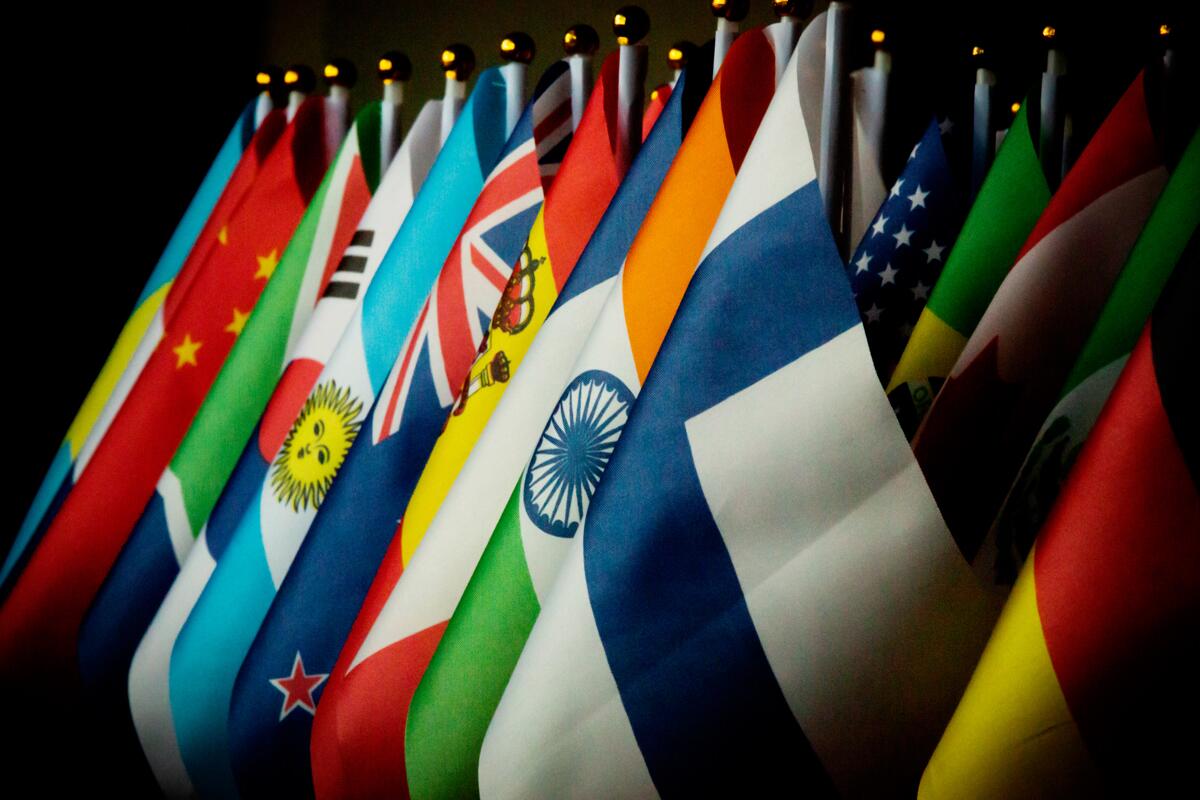ACES safely continues international engagements during worldwide pandemic

The COVID-19 pandemic has created significant disruptions and complications with regards to the College of ACES (and everyone’s) international activities. ACES faculty have engagements in 76 countries, but since March 2020, representatives of ACES have not traveled for official business, and the college has hosted no international guests. Still, faculty and staff have found creative ways to move their international projects forward and have even identified some bright spots among the challenging circumstances.
To better understand how international activities were continuing and what lessons could be learned from different experiences, the Office of International Programs (OIP) initiated a series of structured conversations, summarized below, with 30 ACES faculty members who have ongoing international engagements.
Ongoing activities modified but continuing
Many of ACES’ international engagements have been able to continue by replacing travel and face-to-face interaction with virtual interaction and by increased use of international partners to conduct in-country activities.
Maria Villamil, professor in crop sciences, is one of many who has moved her interactions online. “I’ve been collaborating with my Argentine partner and her team over Zoom to write grant proposals and manuscripts and provide direction to our students’ work; we still host meetings monthly to keep learning from each other,” she says.
Elvira DeMejia, professor and director of the Division of Nutritional Sciences, says, “I continue working with my Mexican and Brazilian partners, writing and publishing manuscripts.”
But in many cases, work cannot be conducted virtually or safely in-country, leaving ACES faculty looking for creative ways to continue their work.
For example, Al Roca, professor in animal sciences, has a project that requires DNA samples from African elephants. He has been able to obtain some of what he needs from accredited U.S. zoos.
Roca is one of many ACES faculty who have strong, existing partnerships he is positive will continue, but he expresses concern for those just starting out in their work. “It will be more difficult for new faculty to establish international collaborations due to the COVID outbreak, travel constraints, and immigration issues. It’s much more difficult to build partnerships when you are unable to meet in person.”
Carmen Ugarte, professor in natural resources and environmental sciences, was looking forward to starting new projects with international partners before several events were canceled. “Instead, I’ve been conducting research in the Midwest and using alternative methods to deliver new research findings to stakeholders. The current focus is on maintaining active projects, getting manuscripts published, and hoping to use that to pursue new international collaborations when the circumstances allow,” she says.
Paul McNamara, professor in agricultural and consumer economics, notes pausing some international field work has allowed more time for additional analysis work that may not have been done in “normal” times.
Increased participation
Some faculty noted they have actually increased their participation in global seminars and conferences, without the time and costs of travel.
“I am interacting with partners more now (online) than when I was able to travel,” says Rabin Bhattarai, professor in agricultural and biological engineering.
Sandy Dall’erba, professor in agricultural and consumer economics, moved his seminar series online in March and has noted an increase in attendance, from 20 to 40 people because people are now “attending” from all over the world.
DeMejia also reports increased attendance for the Division of Nutritional Sciences’ Frontiers of Nutritional Sciences seminar series, which has featured several international speakers.
Challenges Noted
The interviewees expressed concern over a number of issues including the indefinite duration of the pandemic, time zone challenges, “zoom burnout,” and an expected lag in funding opportunities.
Even though the University of Illinois is “well connected” virtually, faculty pointed out that not all of our partners are so fortunate.
McNamara noted specifically, “There are technology, internet, and data limitations with many of our African partners. So we have to build on the technologies they have, for example using WhatsApp instead of Zoom at times.”
Remaining positive
Overall, ACES faculty have been able to maintain and even move forward their international activities, many at a remarkably high level of intensity, and the activities noted above are just a few of the bright spots. ACES faculty remain hopeful that a vaccine will bring opportunities for non-virtual engagements sometime during 2021.
In the meantime, ACES International Programs will continue to offer support as we can, including advertising funding opportunities, making our own funding more flexible with regards to timing and new safety protocols, and continuing to promote and support international activities, both virtual and planning for the future.